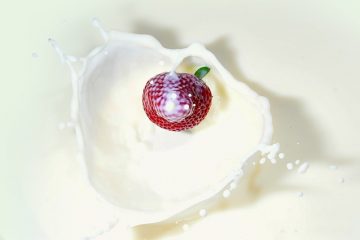This may come as a surprise, but there are many Persian cats in the world who love the taste of bread! But can they eat bread, or is it bad for them? The information in this guide is all that you need to know.
It may seem unusual, but many Persian cats really like the taste of bread. Stories of bread thieves can be found all over the Internet. Persian cats have been known to sneak bread off the counter or compete with their owners over the sound of a toaster.
This phenomenon has baffled Persian cat parents all over the world, but no one really knows why Persian felines find bread so delicious.
If you’re a bread lover, you’re probably wondering, “Can Persian cats eat bread?” and even “Is bread bad for them? This article will answer your questions about Persian cats and bread.
Can Persian cats eat bread?
Yes, Persian cats could eat bread, but it is not recommended. Persian cats won’t indeed need carbohydrates, and bread is primarily composed of carbohydrates, which are considered empty calories for Persian cats and have no nutritional value.
Persian cats can be fed plain bread, but it should never be flavored; as some bread contain garlic, fruit, and even chocolate, which is considered harmful to Persian cats.
Furthermore, bread should not have any toppings. Peanut and butter spread are high in fat and calories, while the chocolate spread is harmful to Persian cats.
Is bread bad for Persian cats?
Bread is not necessarily an unhealthy food for Persian cats, but it does not provide any nutritional benefits. It is high in calories, low in protein, and so dense that it may not leave room for a complete and balanced Persian cat food.
One slice of white bread may have one-fifth of a Persian cat’s daily caloric needs but contains none of the nutritional value the cat needs.
Mostly, however, bread is harmful to cats when it is uncooked. Raw bread dough is very dangerous to Persian cats. A cat’s stomach is in perfect condition for the bread dough to expand, causing the stomach to bloat and distend.
This is usually uncomfortable for the Persian cat, but in some cases it can cause dangerous, life-threatening abdominal bloating.
Yeast, which is used to ferment carbohydrates in bread dough, is also a threat to Persian cats because it produces carbon dioxide and ethanol/alcohol.
When alcohol is ingested, it is absorbed into the bloodstream and can cause respiratory failure and seizures.
If you notice any of the above symptoms in your Persian cat, see your veterinarian immediately.
How to feed bread to Persian cats
Usually, it is best to stop giving bread to your Persian cat altogether and opt for cat-specific treats instead.
However, if your Persian cat really enjoys eating bread, you can offer him a small loaf of baked bread with no toppings.
In some cases, if the Persian cat really likes bread, it can be helpful to administer oral medication.
Simply put the pill inside the small loaf of bread, and if the cat likes bread, she will swallow it immediately. However, this method is not suitable for all, as each Persian feline is unique.
Takeaway
So now you get the answer to the question, “Can Persian cats eat bread? Do you want to know what other human foods your cat can eat? Learn more about whether or not Persian cats can eat eggs.


